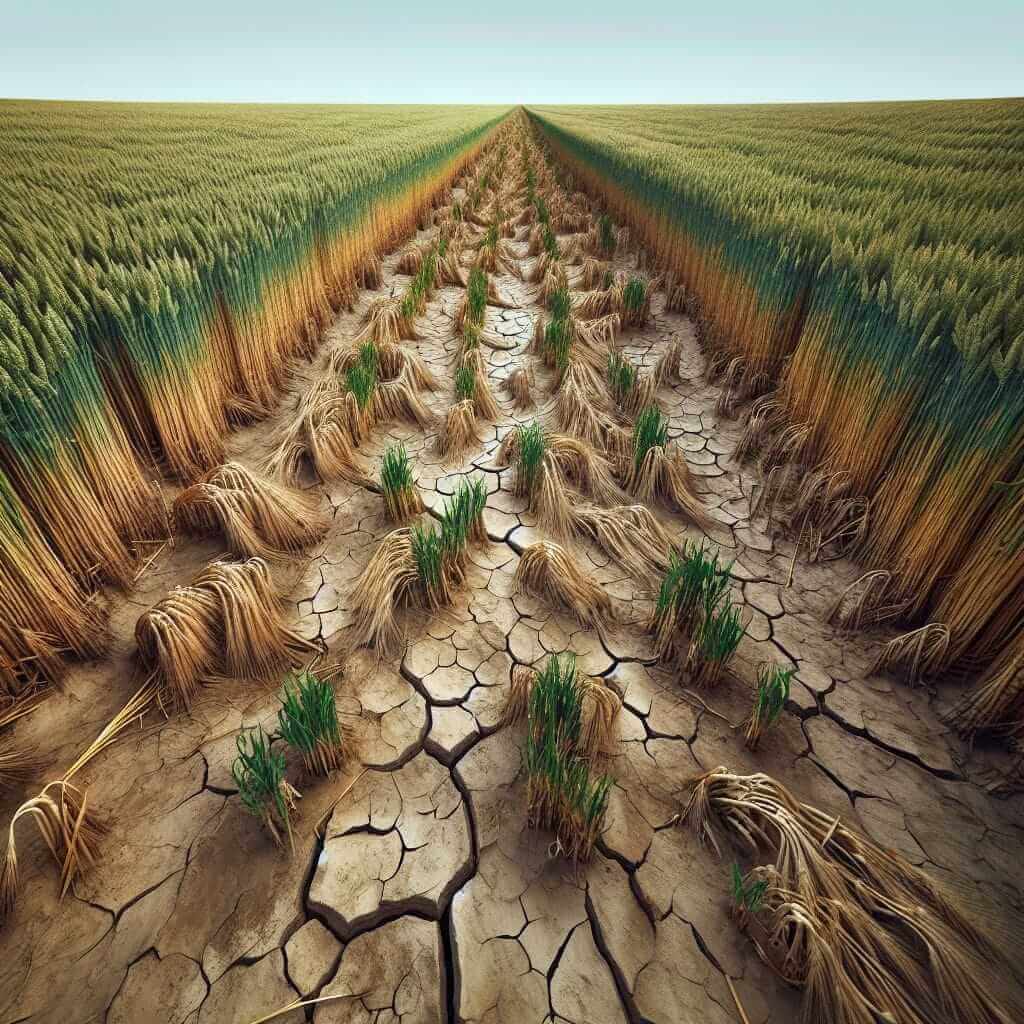The Reading section of the IELTS exam is designed to assess a wide range of reading skills. These include reading for gist, reading for main ideas, reading for detail, understanding inferences and implied meaning, recognizing a writer’s opinions, attitudes, and purpose, and following the development of an argument.
Given the increasing relevance and global emphasis on climate change, it’s not surprising that topics surrounding it, such as the impact on global food distribution, frequently appear in the IELTS Reading section. Examining the historical data reveals this topic’s recurrence, indicating a high probability of similar themes appearing in future tests.
IELTS Reading Practice Test: Climate Change and Global Food Distribution
Reading Passage
Reading passages in the IELTS test are typically categorized into three levels: Easy Text, Medium Text, and Hard Text. The passage below is constructed to reflect a Medium Text level.
How Does Climate Change Impact Global Food Distribution?
Climate change has far-reaching consequences that extend beyond the environment, affecting economies, societies, and the global food distribution network. Multiple studies suggest that rising temperatures and changing precipitation patterns disrupt agricultural practices, diminish crop yields, and create disparities in food supply across different regions worldwide.
Firstly, climate change impacts crop production. Alterations in temperature and rainfall affect the growing seasons, which can lead to significant reductions in yield. For example, staple crops like wheat, maize, and rice are highly sensitive to temperature changes. An increase of a few degrees can reduce yields substantially, leading to shortages.
Secondly, climate change contributes to extreme weather events, such as floods, droughts, and storms, which can devastate crops and infrastructure. The incidence of these events has risen in recent decades, posing significant threats to food security. In 2010, for instance, Russia experienced a severe drought that dramatically reduced wheat production, influencing global wheat prices and availability.

Moreover, climate change affects water supply, essential for irrigation. Glacial melt and altered precipitation patterns can lead to water scarcity in some regions, exacerbating the challenges for farmers. Without sufficient irrigation, crop productivity diminishes, further straining the food distribution network.
Consequently, these disruptions in food production impact global food distribution. Countries heavily reliant on agriculture face economic challenges, as reduced yields affect income and food prices. As agricultural production systems decline, food importation becomes necessary to meet domestic needs, leading to increased food prices.
Lastly, global disparities in food supply are likely to widen. Developing countries, often with less capacity to adapt to climate changes, suffer more severe consequences. These regions may experience heightened food insecurity and malnutrition, while wealthier nations might have resources to mitigate the impacts through technology and trade.
In conclusion, climate change poses significant risks to global food distribution. Addressing these challenges requires an integrated approach, combining climate resilience strategies, technological advancements, and international cooperation to ensure food security for all nations.
Questions
Multiple Choice
-
What is the primary effect of climate change on crop production mentioned in the text?
- A. Improved crop yields
- B. Extended growing seasons
- C. Reduced crop yields
- D. Increased agricultural income
-
Which of the following is a consequence of extreme weather events caused by climate change?
- A. Improved food security
- B. Decreased agricultural dependence
- C. Devastation of crops and infrastructure
- D. Enhancement of irrigation systems
True/False/Not Given
-
Crop production is unaffected by changing precipitation patterns.
- True
- False
- Not Given
-
Developing countries are more equipped to handle the impacts of climate change on food security.
- True
- False
- Not Given
Matching Headings
- Match headings to the paragraphs (i-iv):
- i. Economic impact of lowered agricultural yields
- ii. Disparities in global food supply
- iii. Effects on water supply and irrigation
- iv. Influence of extreme weather events on agriculture
Para 1: __
Para 2: __
Para 3: __
Para 4: __
Answer Keys
- C. Reduced crop yields
- C. Devastation of crops and infrastructure
- False
- False
- i – Para 4 | ii – Para 5 | iii – Para 3 | iv – Para 2
Common Mistakes to Avoid
One common mistake in the Reading section is not paying attention to keywords in the questions. For example, questions often require you to note the specific details provided in the passage. Misunderstanding these keywords can lead to selecting the incorrect answers.
Vocabulary
- Disparities (noun): Differences that are not fair or that are treated differently
- Pronunciation: /dɪˈspærɪtiːz/
- Meaning: Lack of equality
- Precipitation (noun): Water that falls to the ground as rain, snow, etc.
- Pronunciation: /prɪˌsɪpɪˈteɪʃ(ə)n/
- Meaning: Any form of water that falls from clouds
Grammar Point
- Present Perfect Tense: Used to describe an action that began in the past and continues to the present.
- Structure: [has/have] + [past participle]
- Example: “The incidence of these events has risen in recent decades.”
Advice for Achieving High Reading Scores
- Practice Regularly: Consistent practice with different types of reading passages and questions can help you become more familiar and confident.
- Manage Your Time: Allocate your time wisely during the test. Spend enough time on each question but avoid lingering too long on any single one.
- Read Widely: Broad readings on various topics can increase your vocabulary and comprehension skills. Include topics on current global issues like climate change.
- Develop Skimming and Scanning Skills: These are essential for quickly locating information in the text.
By integrating these strategies and practicing diligently, you can enhance your Reading skills and perform better on the IELTS exam.